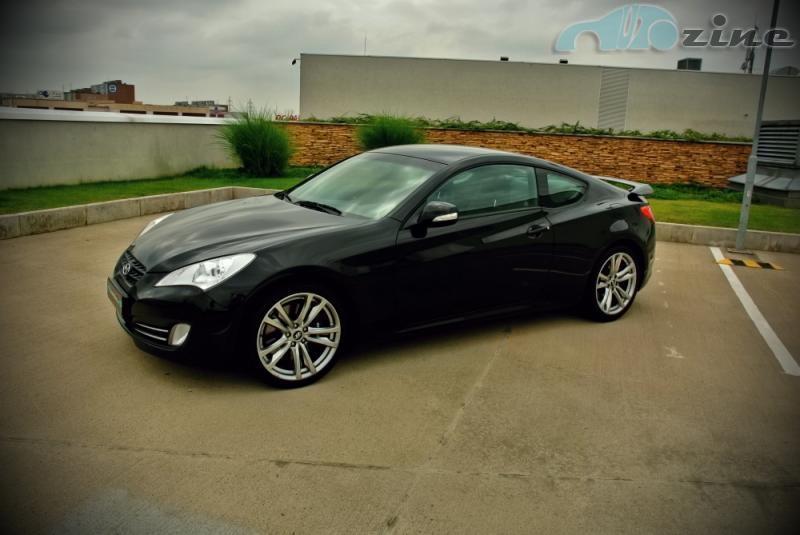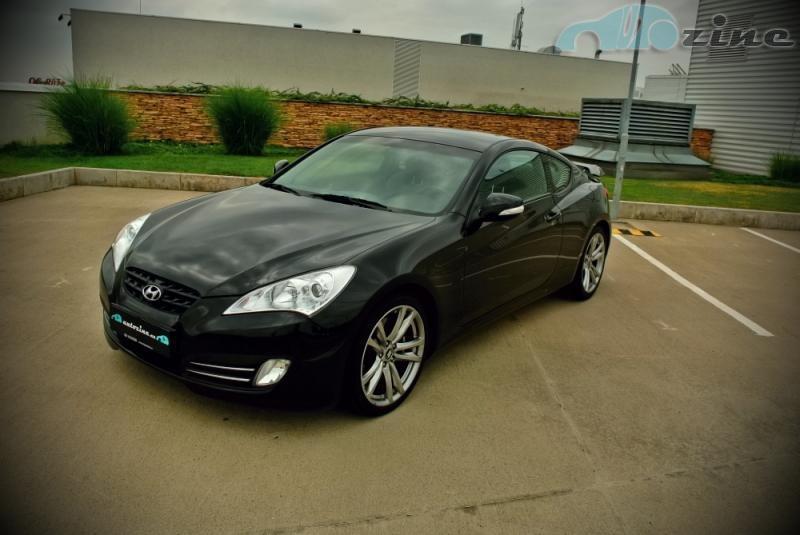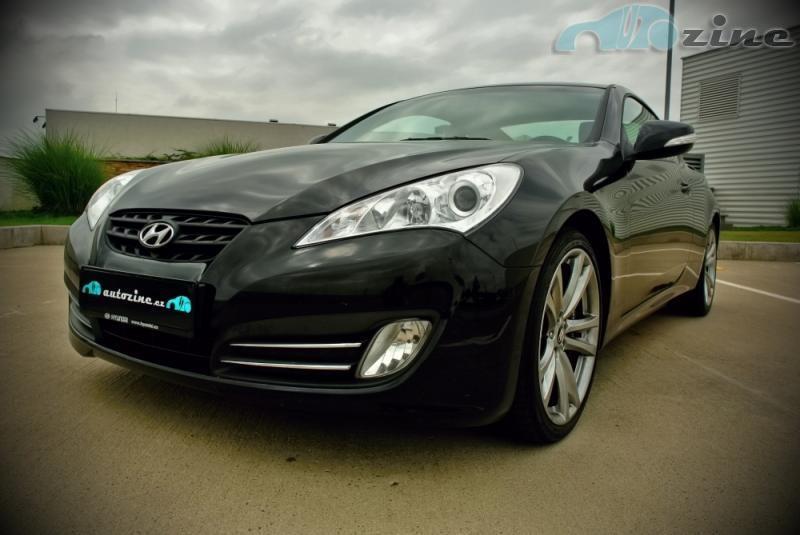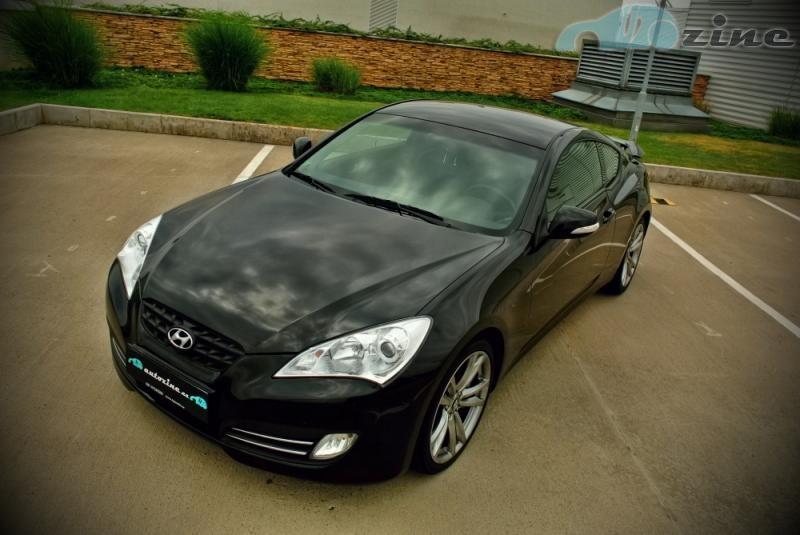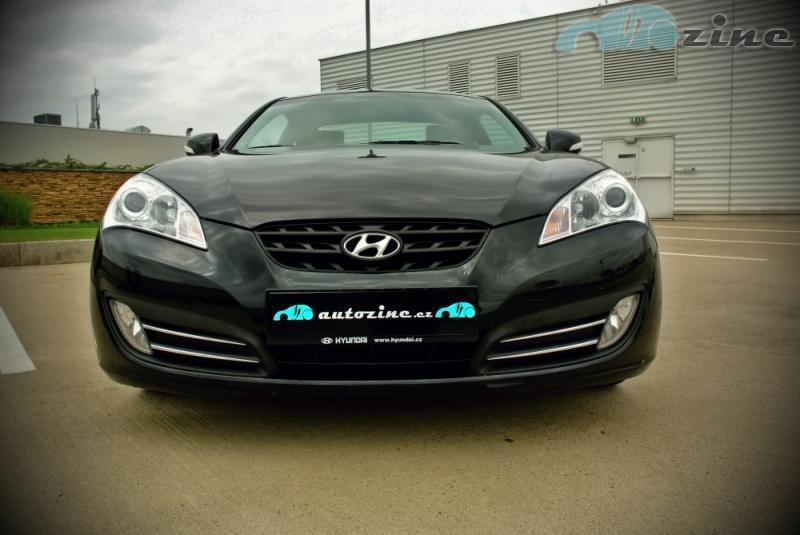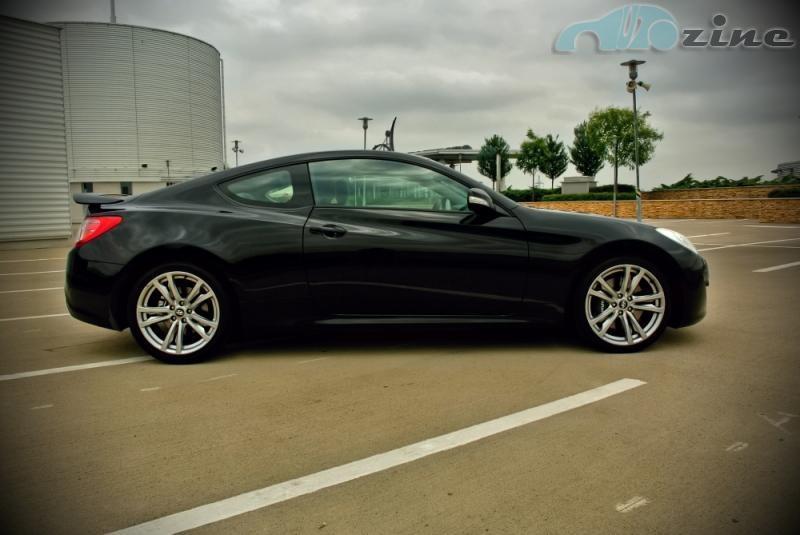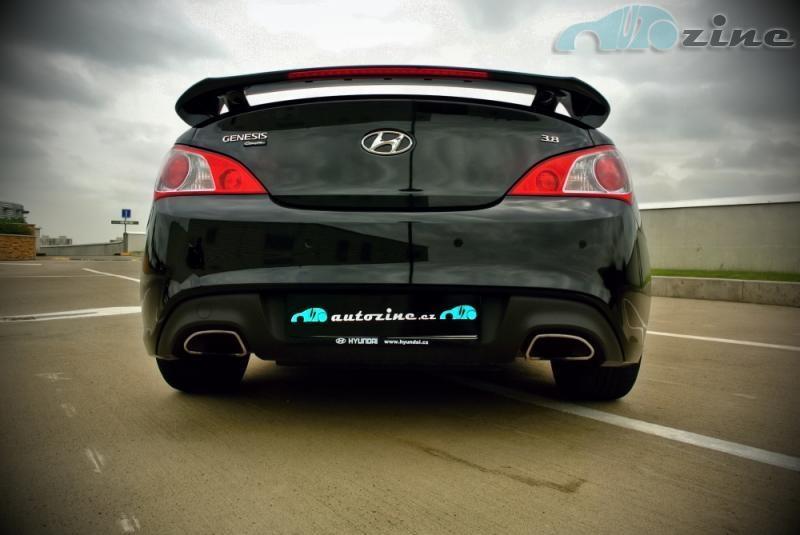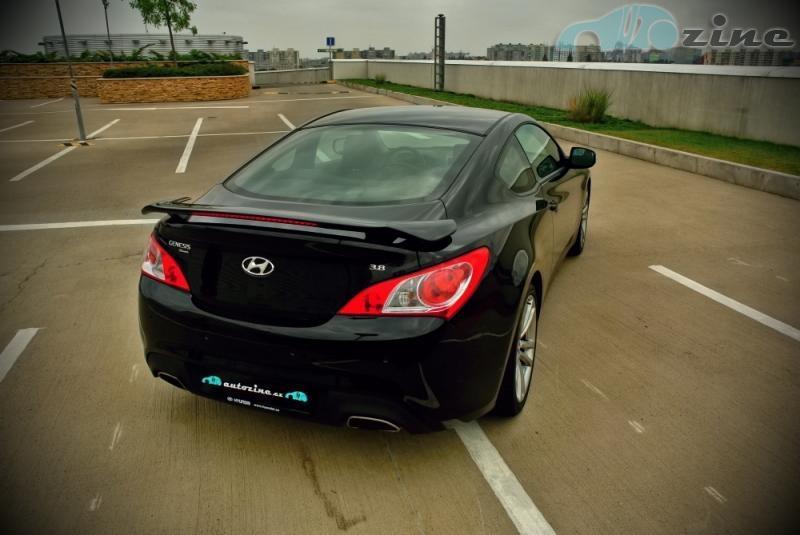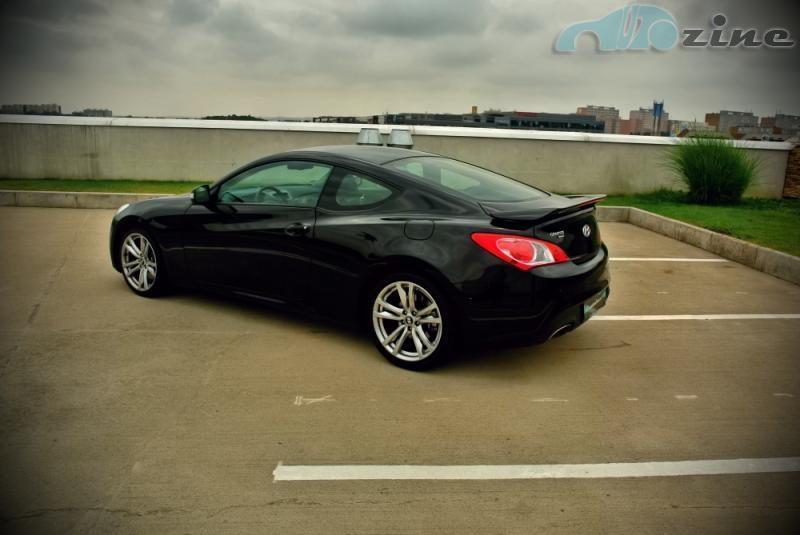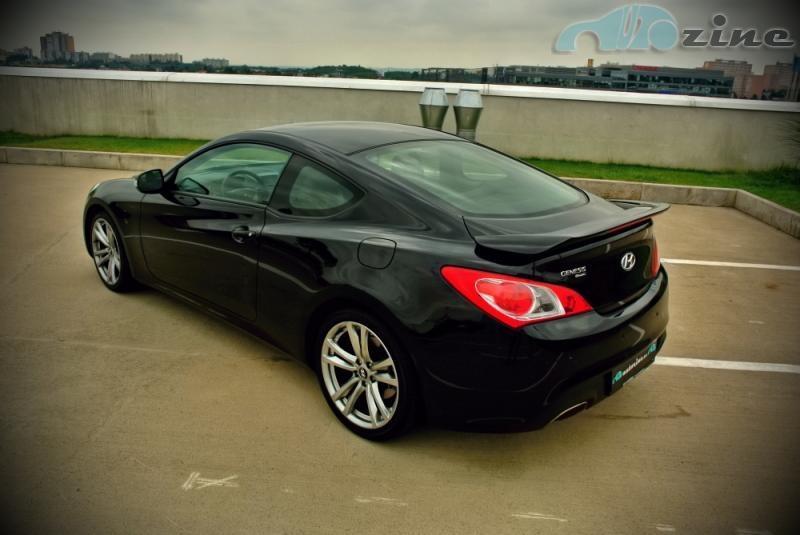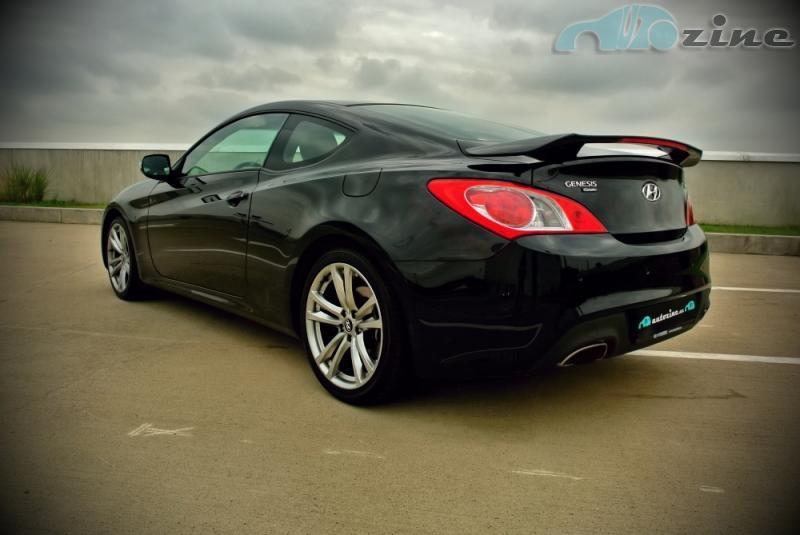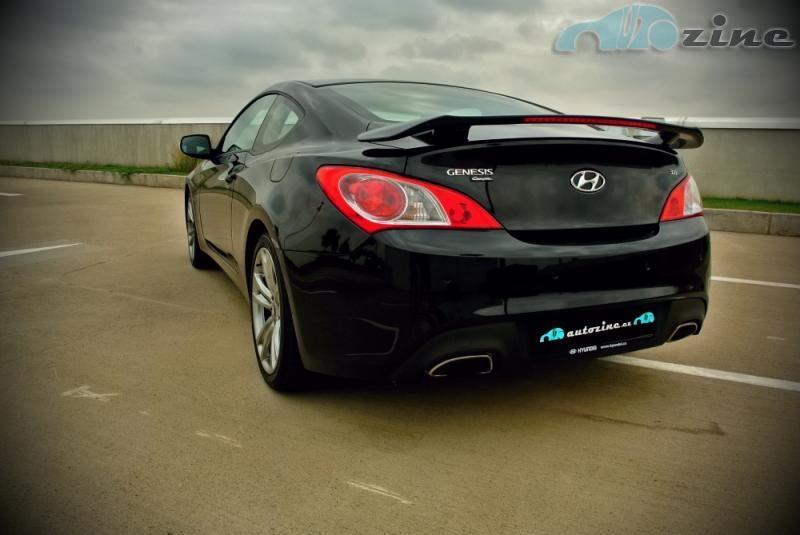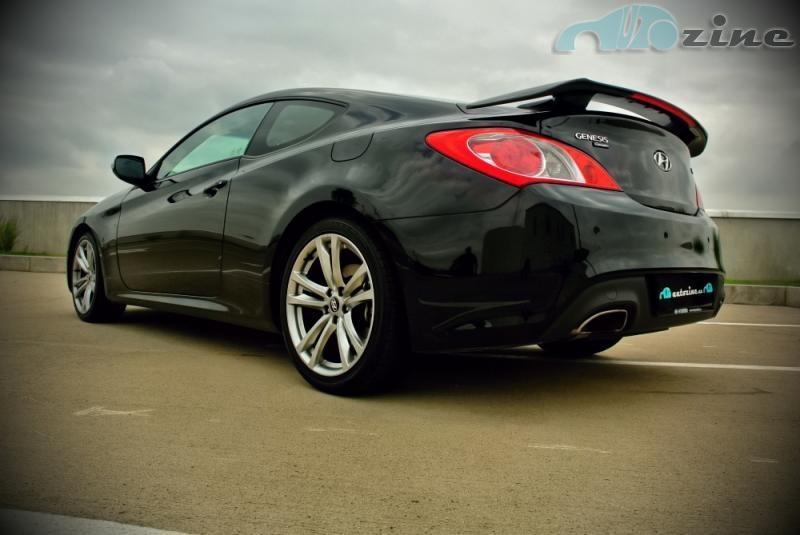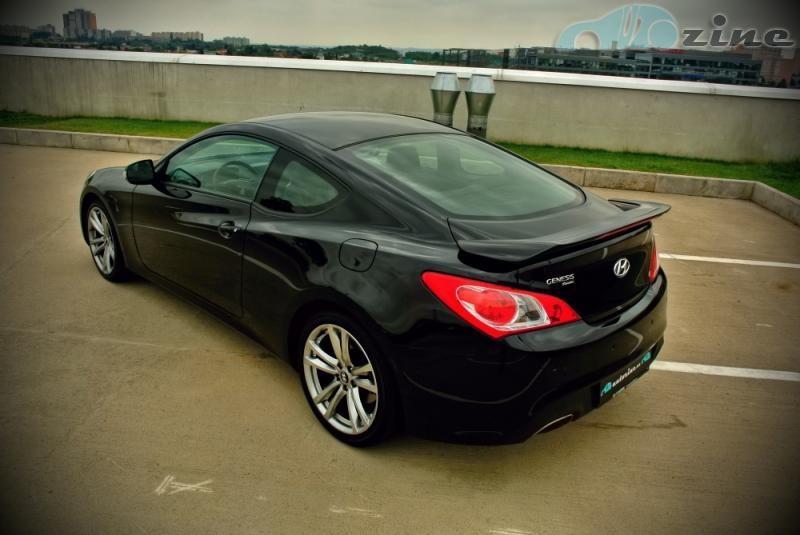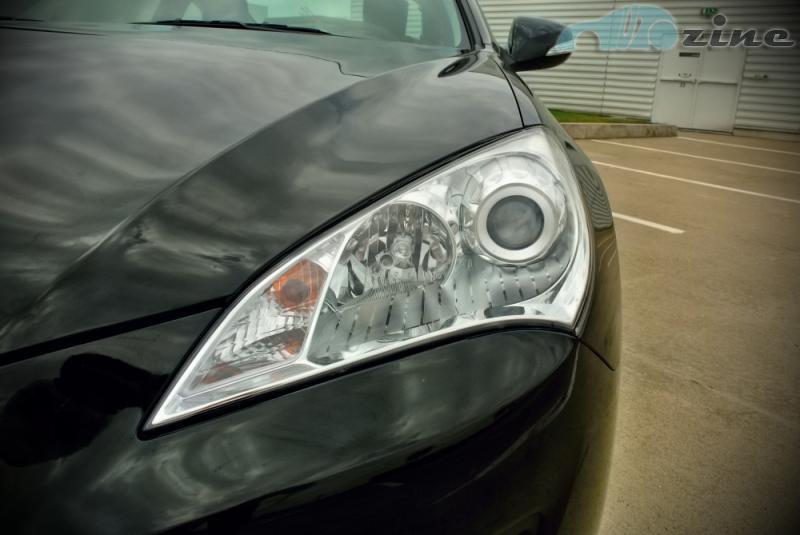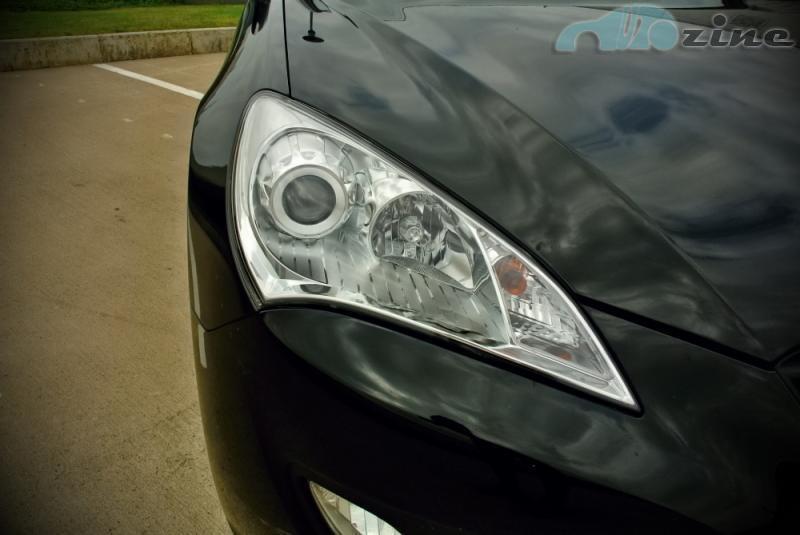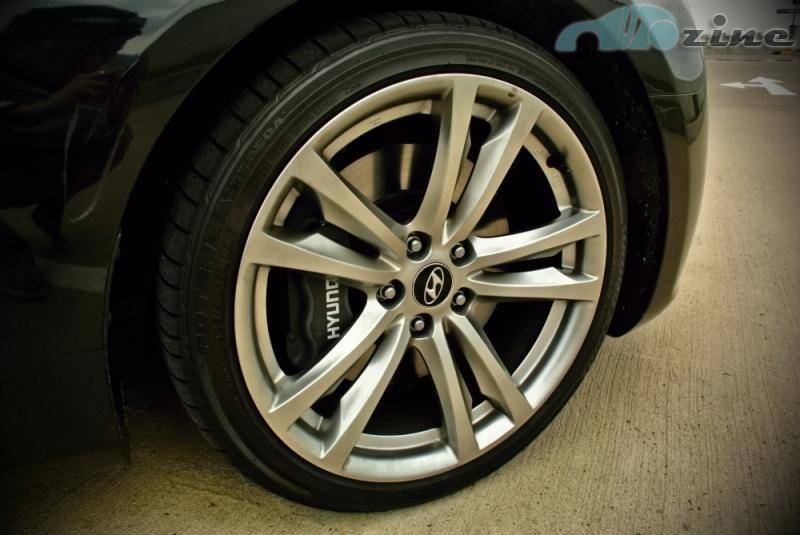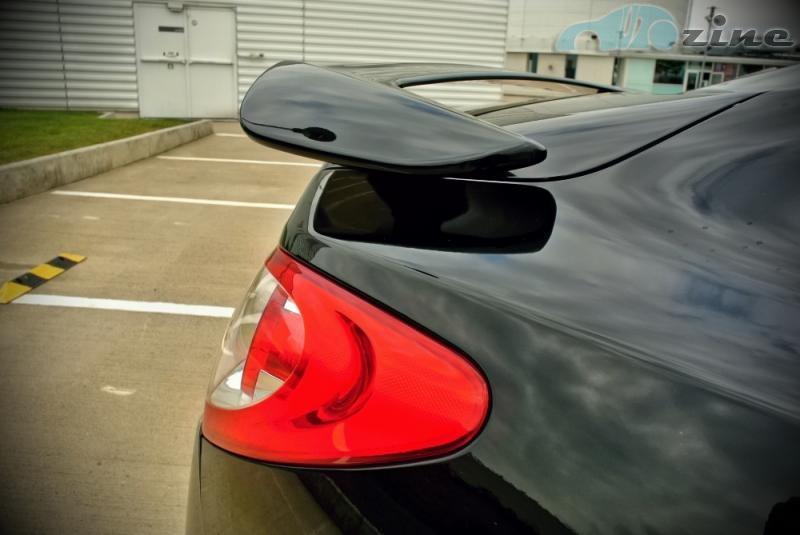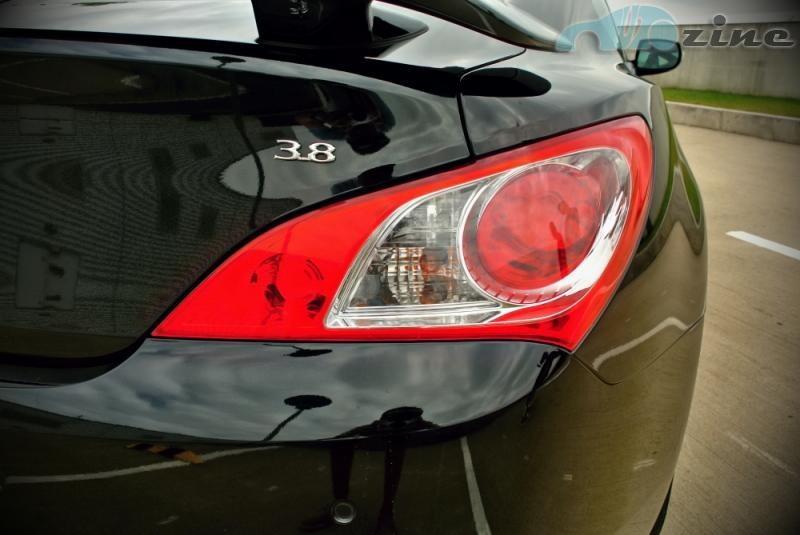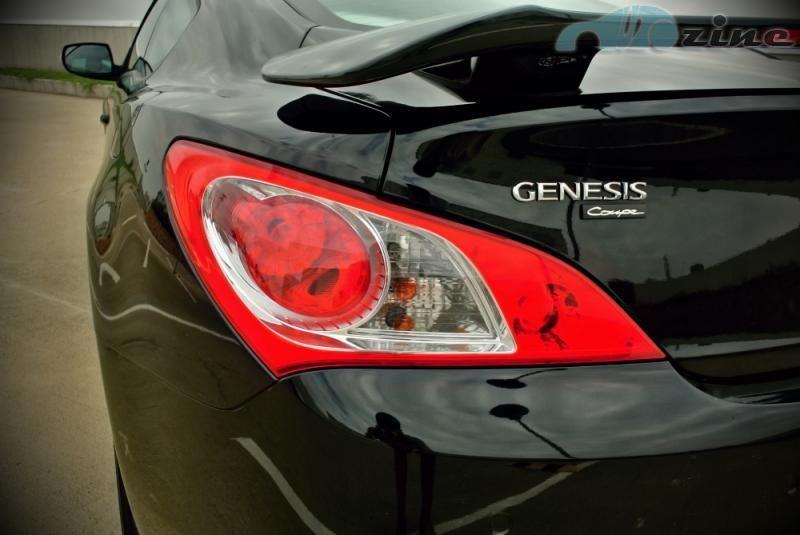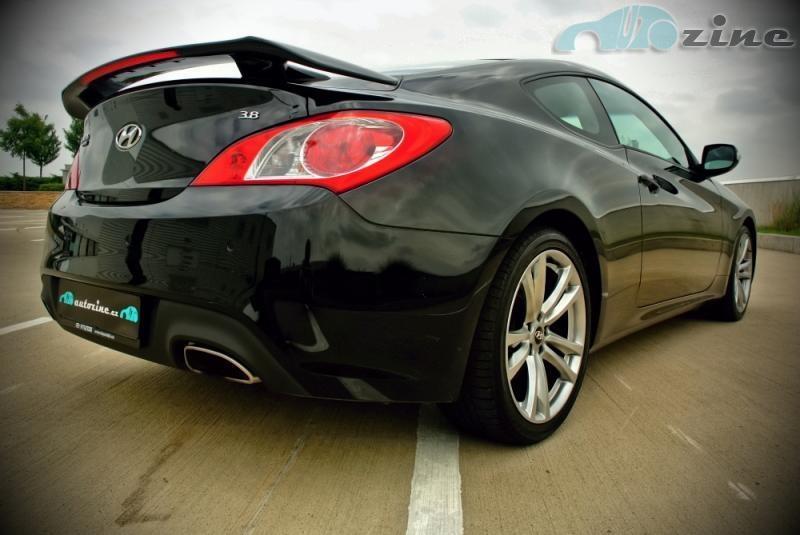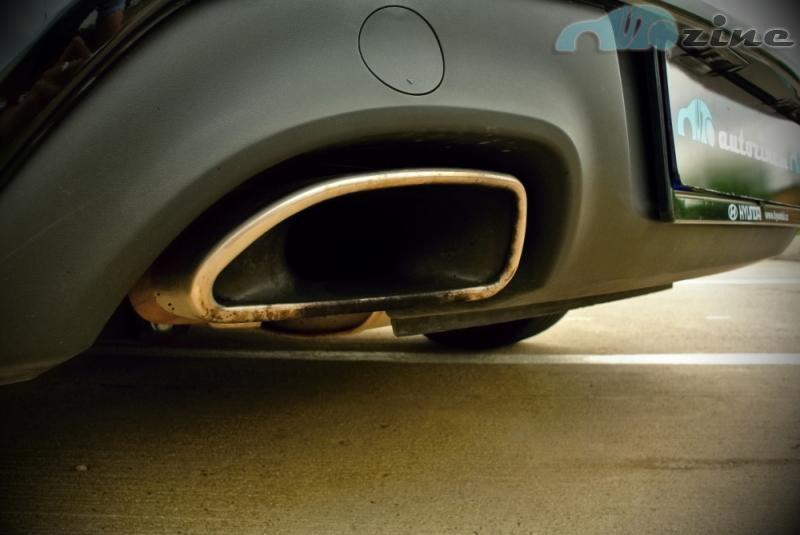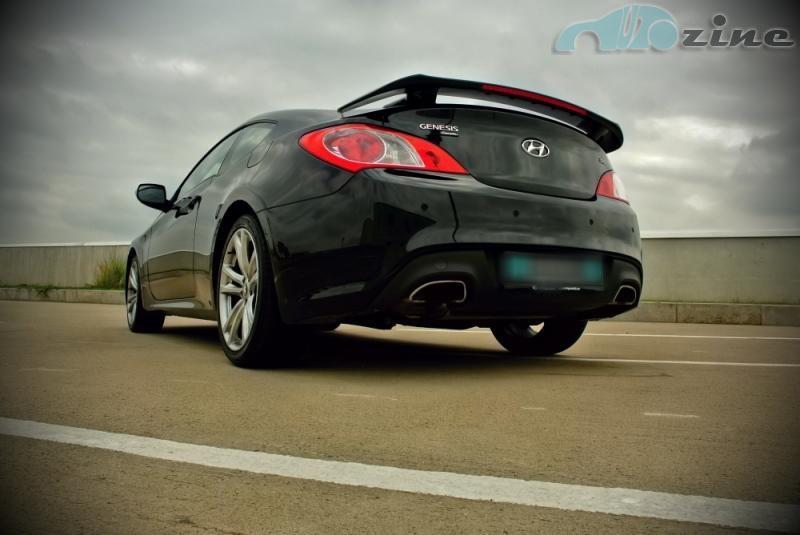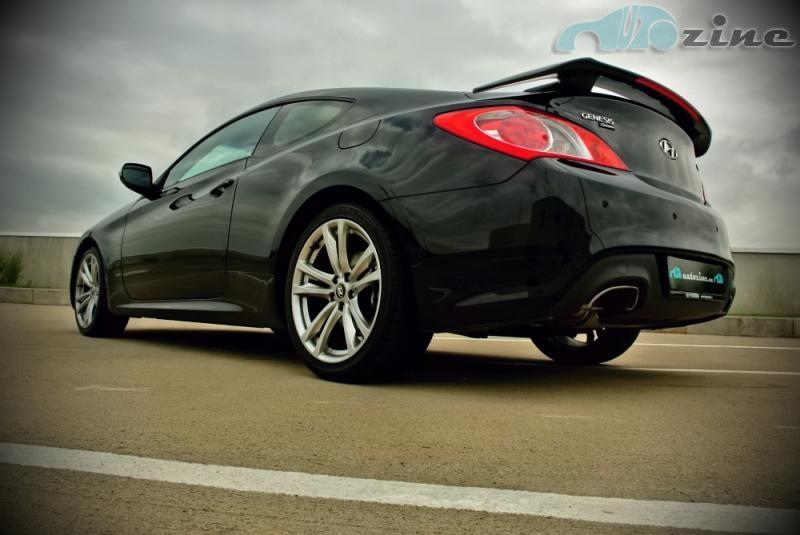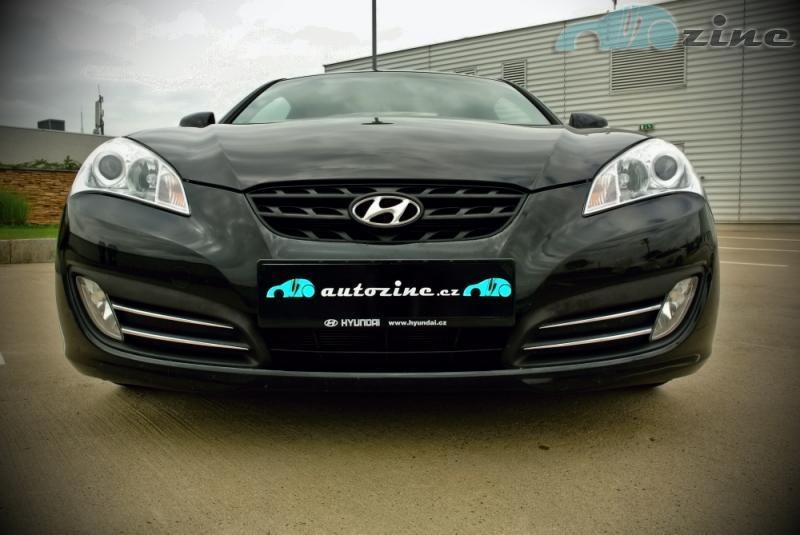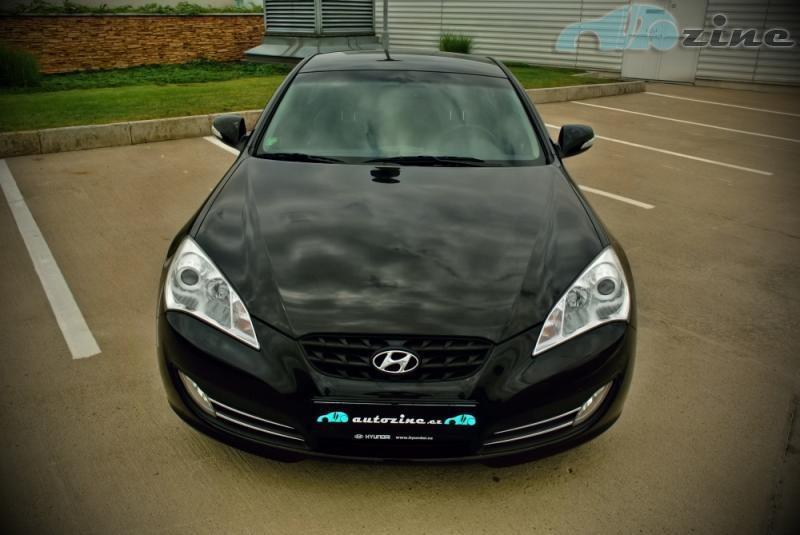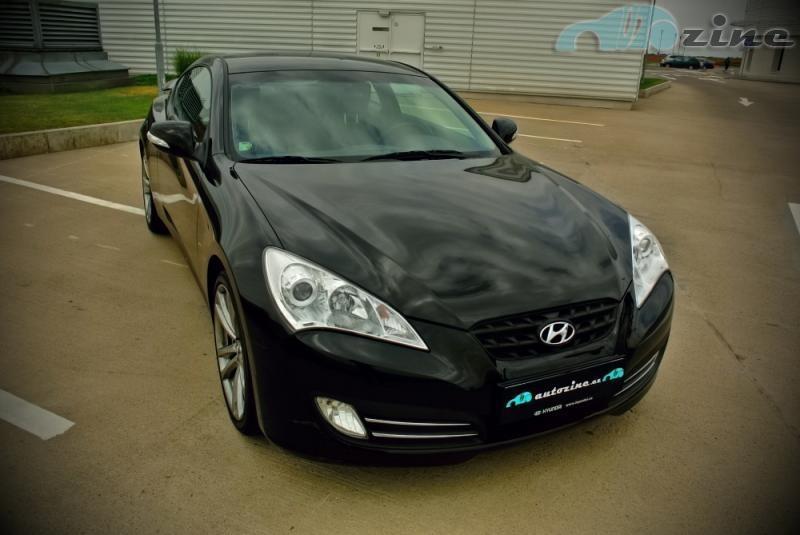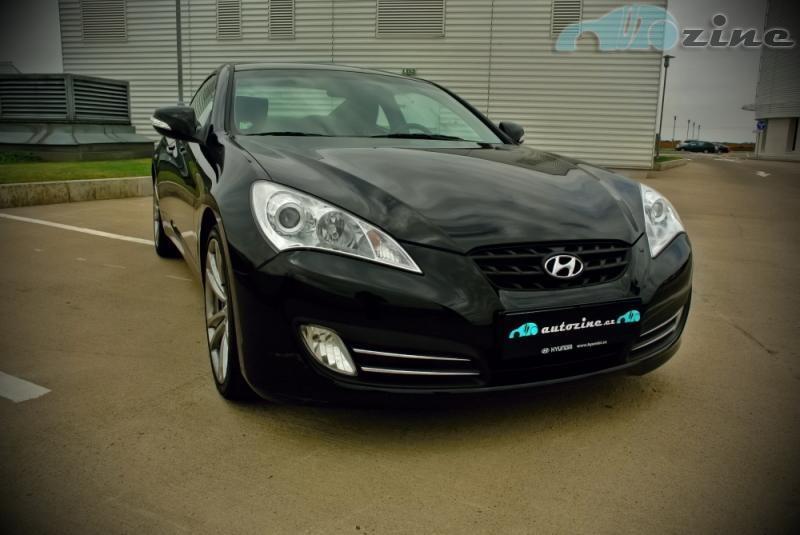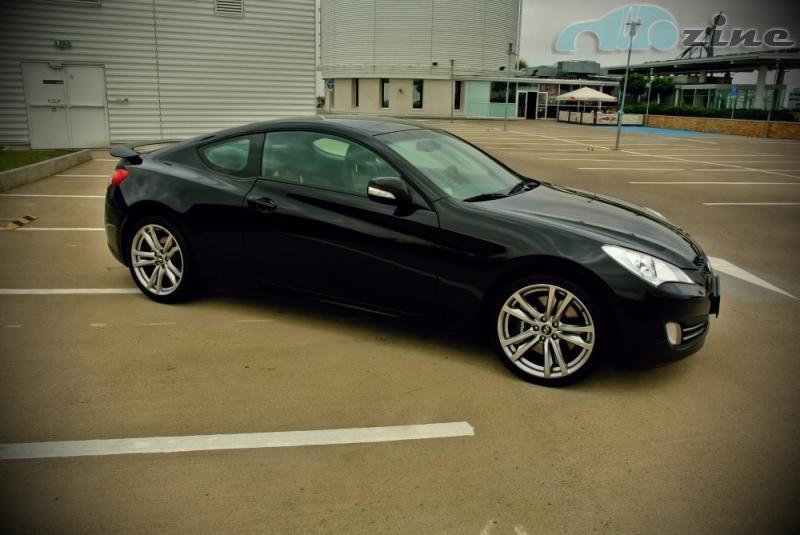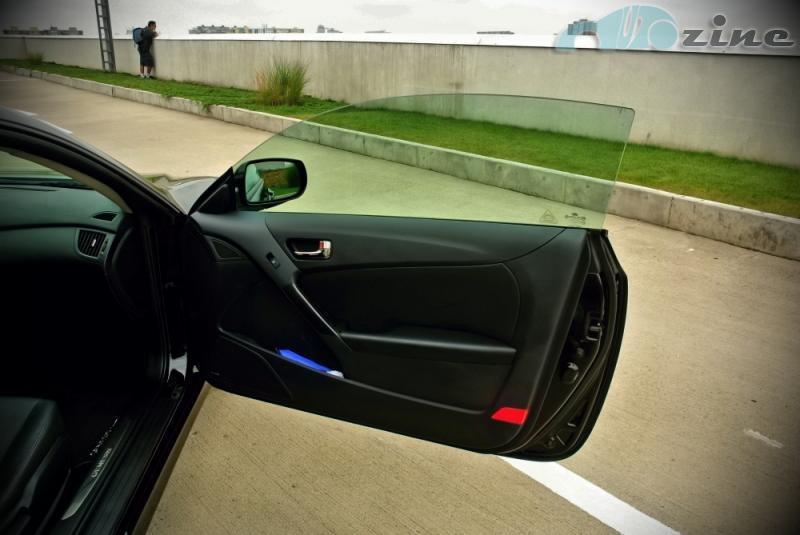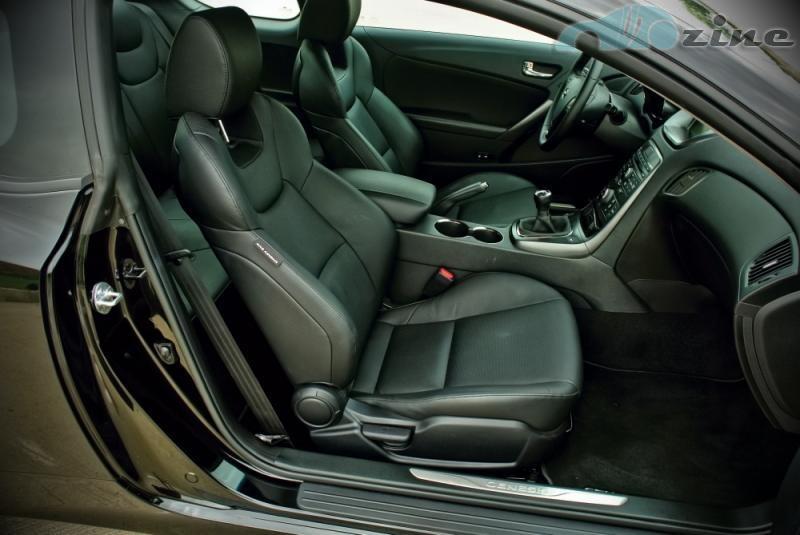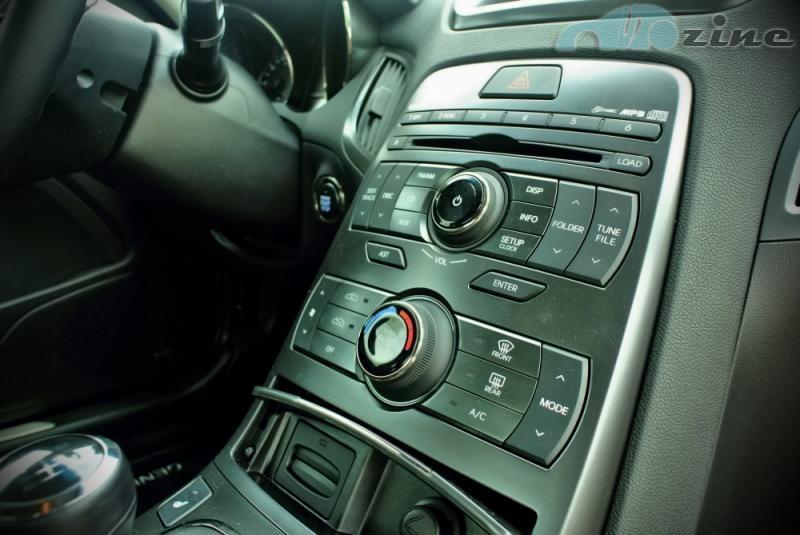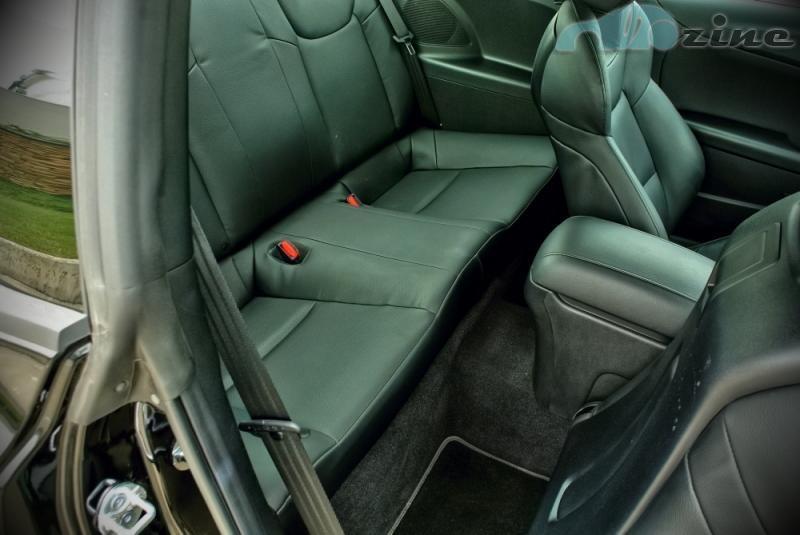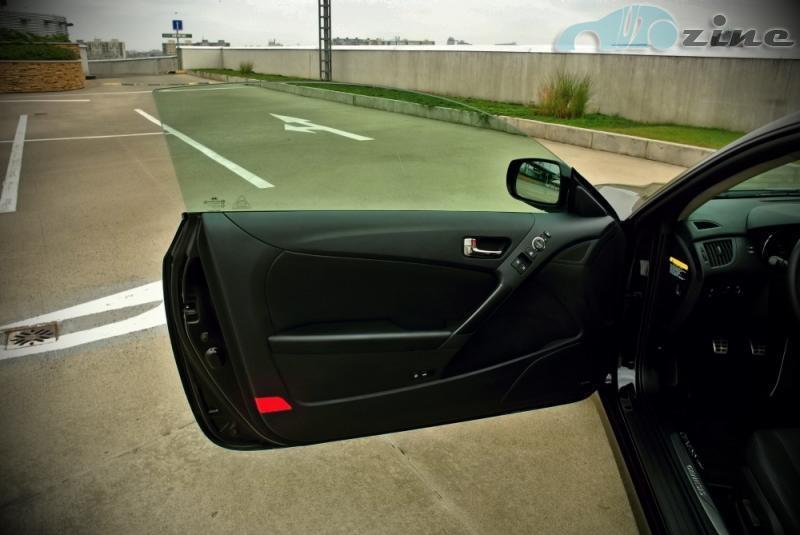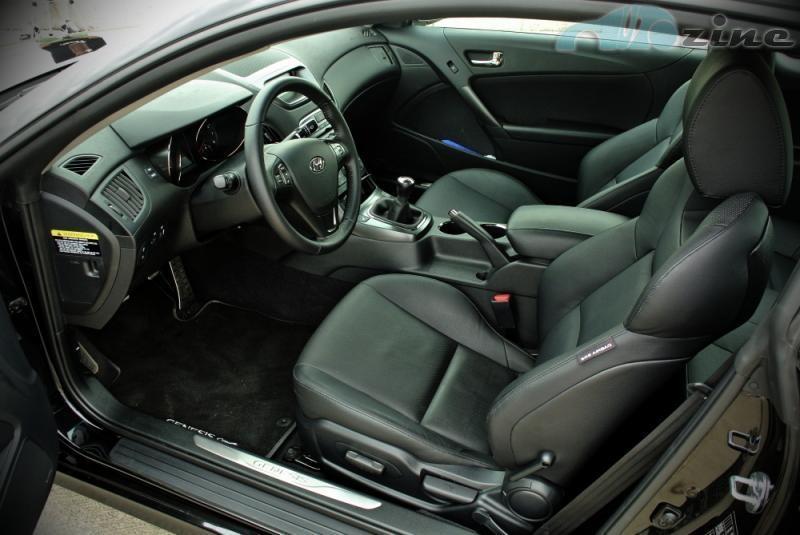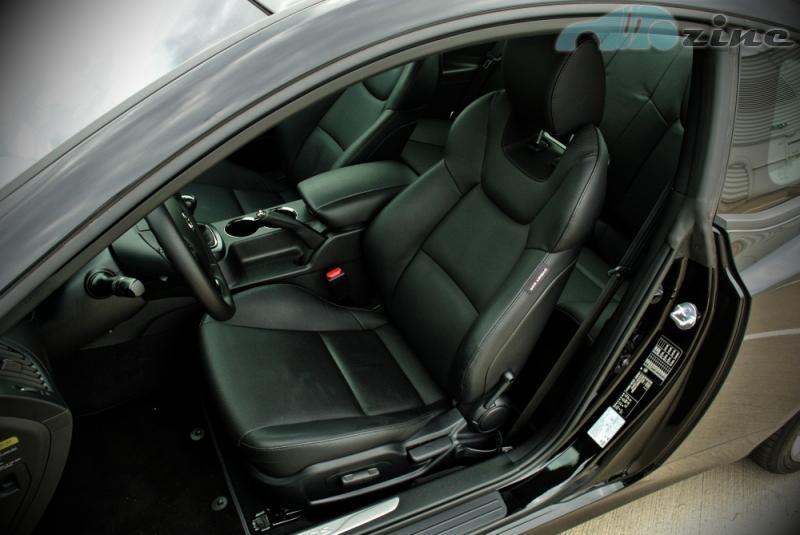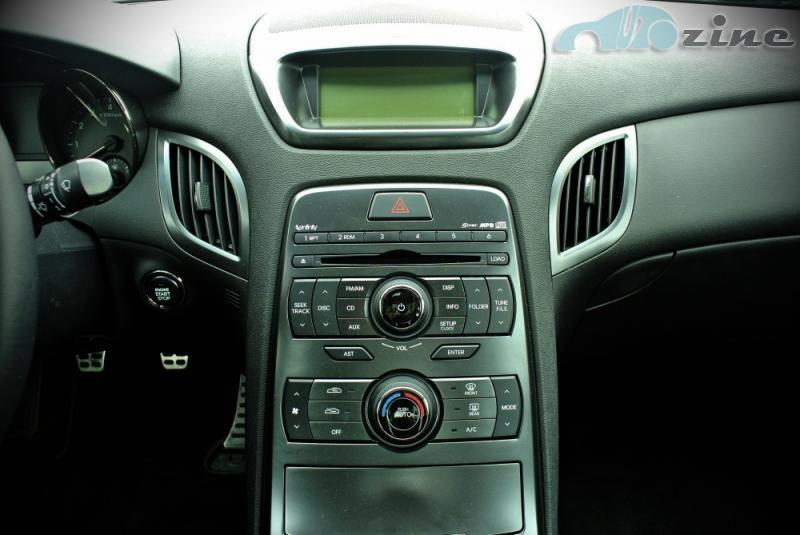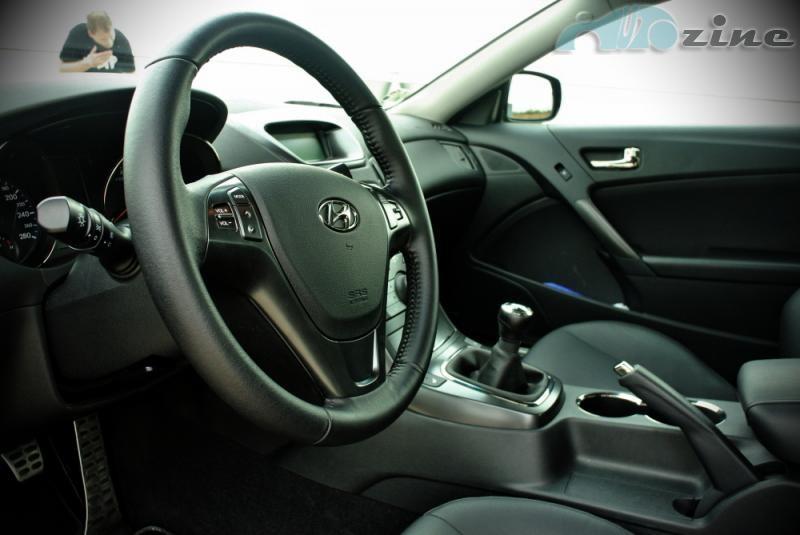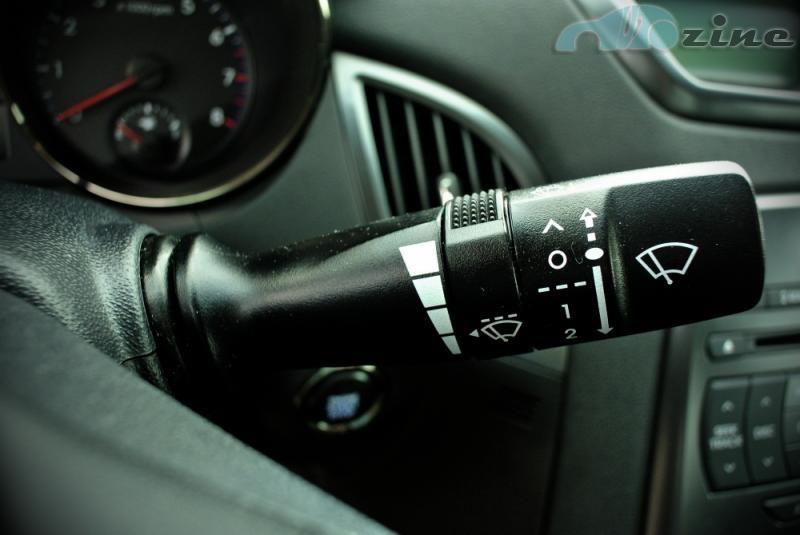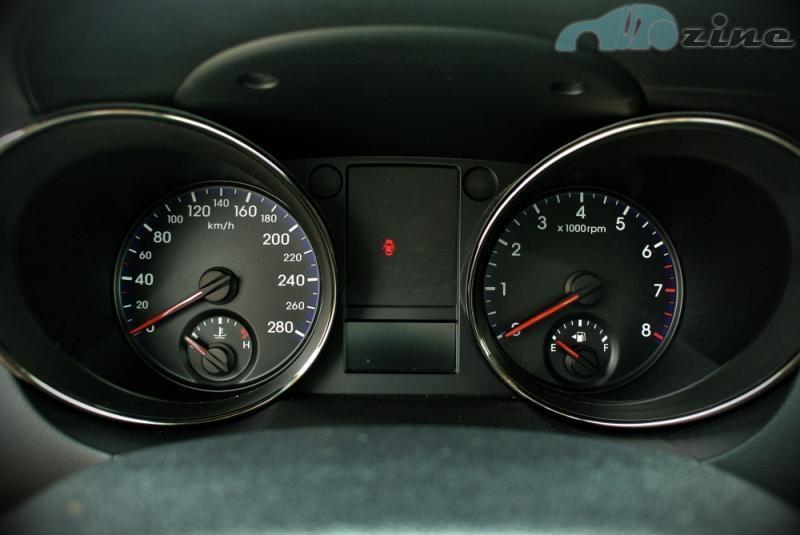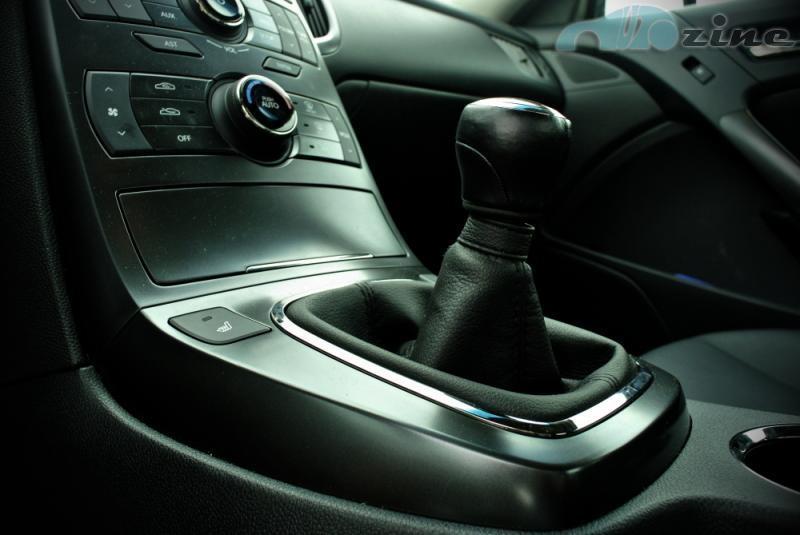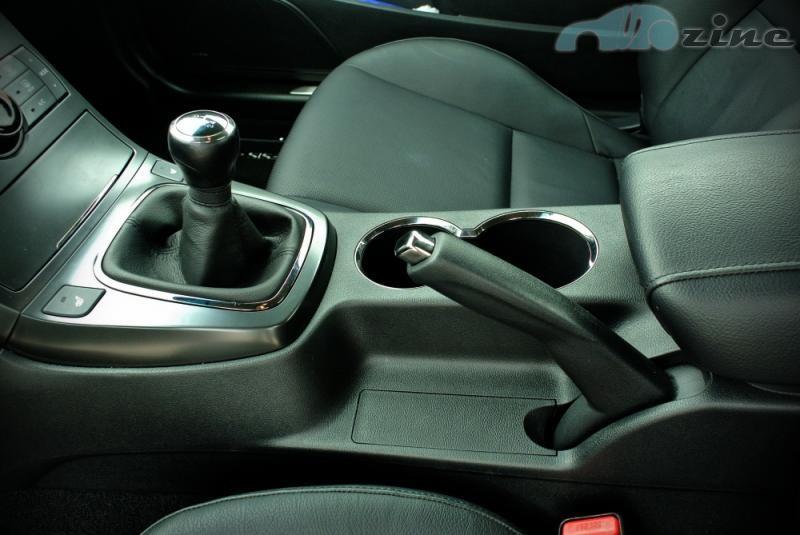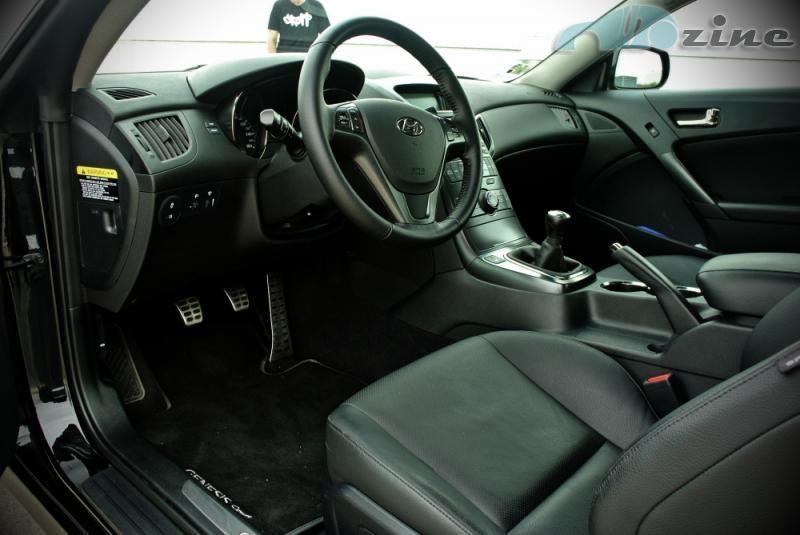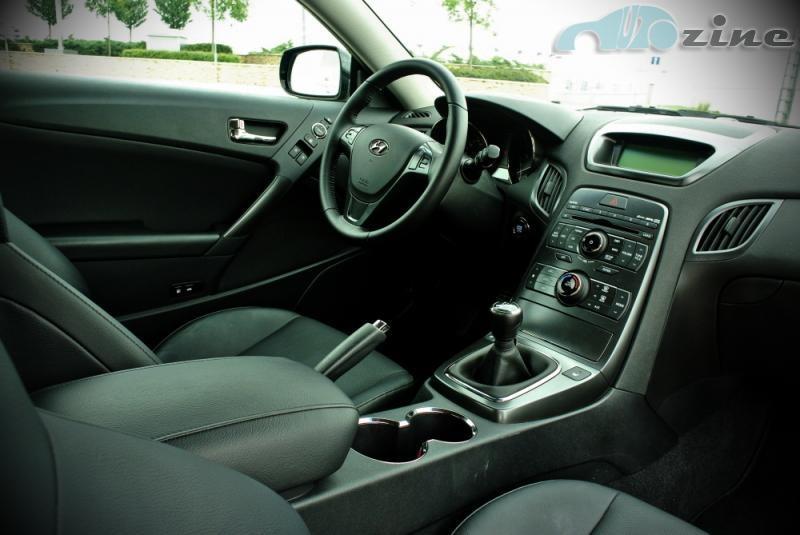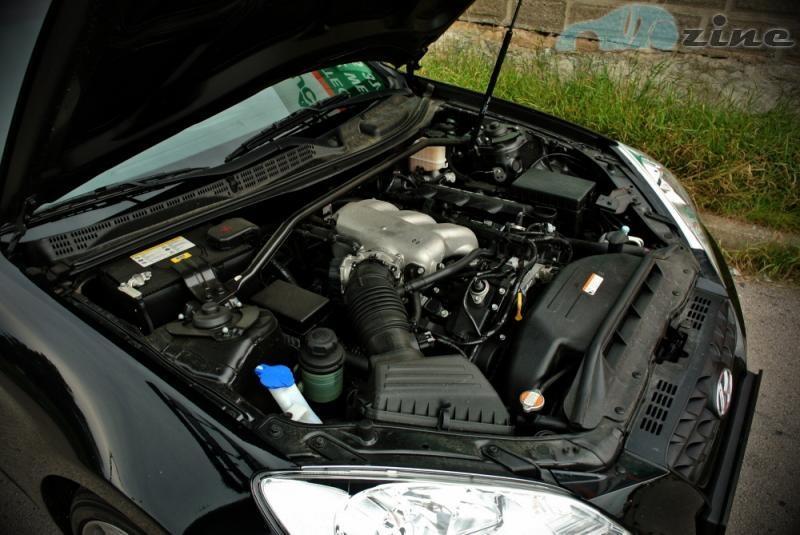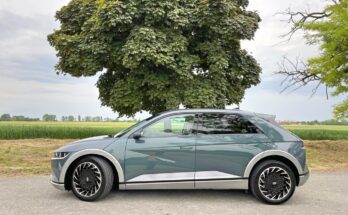In today's era of over-electrified downsizing cars, where there are more sensors and sensors monitoring your steps than a poppy in the field, a ride with the Hyundai Genesis Coupe is a balm for the soul of every driver. Don't get me wrong, today's electronic assistants are certainly a plus in terms of safety and undoubtedly help to solve crisis situations, but … sometimes it's better to just turn them off to find out what the car is about. And if you turn off the "helpers" in a car with an atmospheric six-cylinder engine in the front, rear-wheel drive and a self-locking differential, that's just the "real nut"!
##genesis-our##
Fortunately, Hyundai is not alone in its class with its drive constellation, its competition is, for example, the Nissan 370 Z , which somehow does not match the price. It cannot be said that Hyundai, as a car manufacturer mainly focused on practicality, did not give space to sportier models, let's remember the predecessors Scoupe and Coupe, but firstly they did not dazzle and secondly they were front-wheel drive – Genesis Coupé is the first Hyundai with rear-wheel drive. The Genesis Coupé came to the world in 2008 for the Korean market, a year later it arrived in the USA and another year later to us on the Old Continent.
Exterior
We already had a Genesis in the editorial office, it was a basic model with a two-liter inline four-cylinder with a turbo, without a self-locking differential. You can read our experience with it HERE . Needless to say, we easily liked it and couldn't wait for its more atmospheric version. The expected moment came and I couldn't wait to test his abilities. First, let's look at it from the outside. It does not differ from the Turbo in appearance, the fact is revealed practically only by the marking on the back. It is quite massive, with a length of 4630 mm, a width of 1865 mm and a height of 1385 mm. There is 2820 mm of construction area between the front and rear axles, which only reinforces the belief that the Genesis is really no crumb. I admire the muscular shapes every time I meet them and I have to say that the guys from Hyundai can pat themselves on the back – really good job. Although it has Asian features, it's definitely boyish enough. A discreet exhaust tip, frameless windows and a decent rear "wing" complete the sporty nature. The intensity of interest in the neighborhood can be compared to much more expensive and exclusive cars, almost everyone really turns to him. In addition, a facelift is already knocking at the door, which does not look in vain at all.
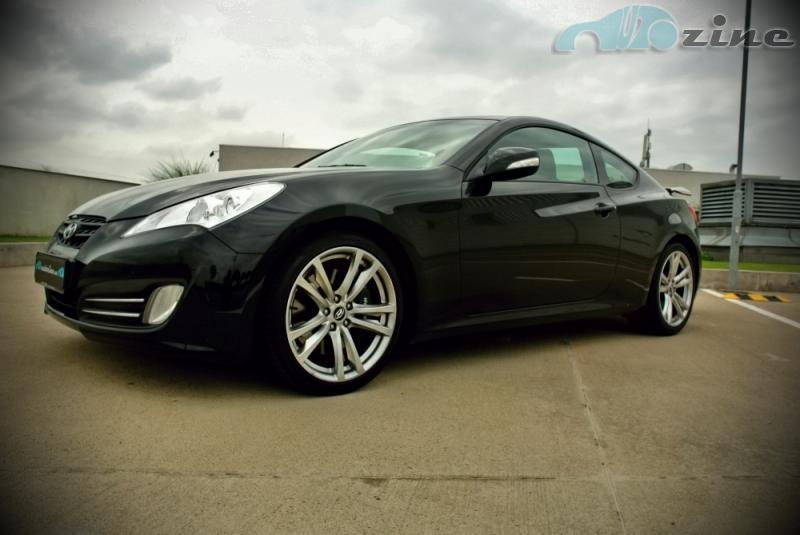
Interior – There is beauty in simplicity
The interior may seem a little colder to some, but I am a supporter of simplicity. Maybe it's wrong that I don't like the abundance of buttons on the steering wheel and displays, but I like to see classic analog instruments in front of me, which I can admire as they fight their way up the scale. In terms of shape, the interior is pleasant and there is nothing to unnecessarily distract you. Ergonomically, I would place the handbrake closer to the shifter and the gas and brake pedals closer together. The position behind the wheel is excellent, as an average guy with 192 cm I was extremely satisfied, even if Genesis only offers a height-adjustable steering wheel. The only design comment I make is the steering wheel, which is rather reminiscent of other Hyundai models. The leather seats are definitely not bad, but maybe they could use a little better lateral guidance. There is really a lot of room in the front, especially in width. In the back (Genesis has a 2+2 arrangement) there is surprisingly enough legroom, it's worse in other areas – those who are 165 cm or more can't straighten their head. But who would worry about headroom in a coupe, right? On the contrary, the luggage compartment is a surprise – 332 liters and the overall compact shape is one thing, the folding rear backrests are an interesting addition.
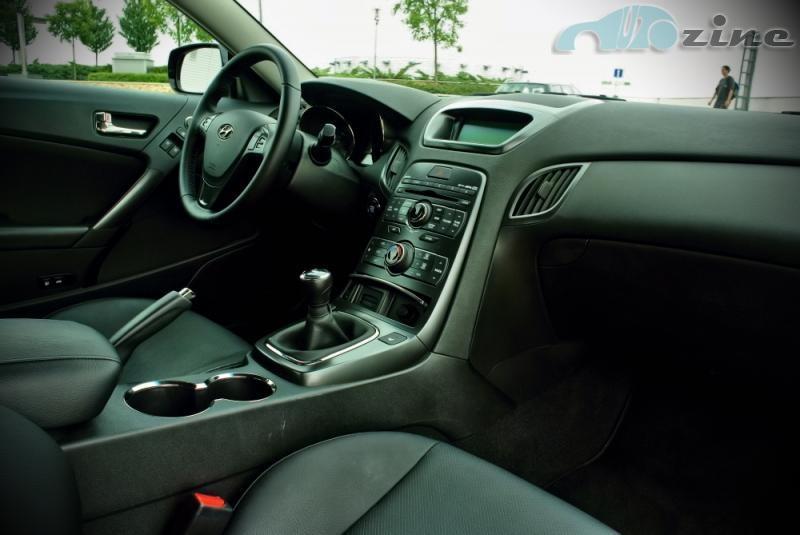
Engine
I rather prefer the mechanical side of the car, and especially with the Genesis coupe, I won't go on about whether the button is well placed and so on. Rather, I want to share my driving experience with you. But first, we need to talk about the thoroughbred working under the hood. The 3,778 cc Lambda fork-six with indirect injection for now (the facelift will already have it) is mounted longitudinally at the front and produces 228 kW (303 hp) at 6,300 rpm and 361 Nm of torque at 4,700 rpm. It is connected to a six-speed manual gearbox, from where the power goes to a self-locking differential. The weight slightly exceeding 1600 kg goes hand in hand with the size and concept of the car. But you have to finally press the Start button and go. There are two options for driving with Genesis . Level 1 means leaving the stabilization system on and driving relatively briskly and safely, or try Level 2, which I recommend to more experienced drivers who have already had a sharper rear wheel in hand. Level 1 doesn't allow you to get too excited and reacts to every possible wheel shake like a cowboy who throws a lasso at a bull and immediately paralyzes it – it simply takes away your power noticeably and the start looks quite rickety and amateurish just like trying to get through a corner faster. And so, to the start routine of turning on the belts, turning off the driving stability system was added.
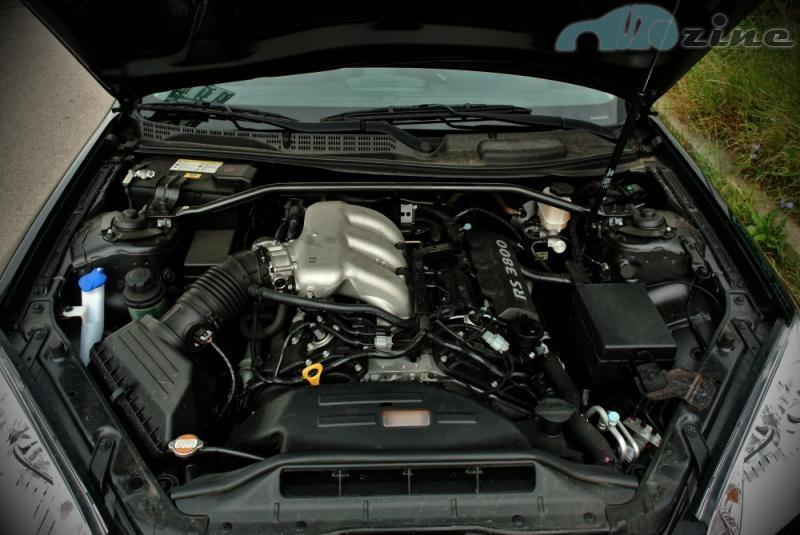
I respect all the engineers who can build a relatively small-displacement, high-torque turbocharged engine that feels and feels like a much larger engine. But, then you sit in the strong "atmosphere" of the Genesis and find out that this is really THAT fun, the engine breathes as the revs increase and it doesn't matter until the limiter at 6,500 thousand. Maybe it sounds like a cliché, but turbo engines (not all of them, of course) simply cannot match the performance of an honest big naturally aspirated engine. The engine cooperates without problems already at the lowest revs, it collects decently around 2,000 revs, then comes the middle, perhaps seemingly slightly unremarkable band and then starts beautifully around 4,000, there is its hell, where you have to earn the 300 horses at Lucifer . The performance scales beautifully all the way to the top and it makes me incredibly happy – yes, this is how it should be. Perhaps 303 horses from a volume of 3.8 liters is not the best value, but everything is compensated by the course of the engine's performance and its overall performance. Acceleration from zero to 100 km/h in my own unprofessional measurement took exactly six seconds. If you are interested in consumption, a colleague was able to drive under seven liters on cruise control, on average you can hang around 9-10 liters. If you go crazy, you can even fly above 15-17 liters. These are decent numbers for an almost four-liter engine.
Drive
The sound is a chapter by itself with the six-cylinder Genesis , a completely different league than with the 2.0 T version. The wonderful predatory sound is not only in charge of the exhaust, but of course also the intake, especially in the higher rev range – it really is a sonata for every ear. I have to praise the reaction of the gas pedal. I was quite resigned to the fact that I might not find a car that reacts so sensitively and quickly to pressing the gas, but the Genesis really pleased me. It reacts great, just a sharp tap on the gas will cause exactly the kind of engine response you would want and expect. Great! This is also related to the fact that the Genesis wants to give quite a bit of power for the first few centimeters of the gas pedal stroke, after a "deeper" pedaling, the gradation is no longer so pronounced. Fortunately, there is one last section near the floor that catapults the car forward with full steam and wonderful linearity. However, the first few starts were also with whistling wheels. Let the sleepy and "ecological" drop in revs when you take your foot off the gas a small caveat. It's a shame , because it spoils the impression a bit when accelerating – but the far apart brake and gas pedals also spoil the impression, so it's very difficult to operate them with one foot.
As a supporter of manuals, I was extremely grateful for the manual six-stroke. The shift tracks are quite precise and stiff, as a proper sports car should be. I noticed a problem when shifting two and three. The three-pointer is close to the five-pointer in its path, it's more just a matter of getting used to the quick and accurate placement. The longitudinally mounted engine always deviates to the side when adding and removing the gas, the softer silent blocks of the aggregate are responsible for this, which of course cannot be as hard for a series car, however sporty, as for racing specials, and therefore to a certain extent during very fast gear changes, the mentioned affect the order of the three. I noticed a problem with the synchro with the deuce, I don't know if it's a problem with all gearboxes in general, or if it's just that the press piece has already gotten so bad that the synchro has worn out a bit. I was pleased with the stiff clutch, as well as the short and sharper shot. The four -piston Bremba are completely unremarkable. They dose excellently, and even when they get "smoked", they don't tend to fade.
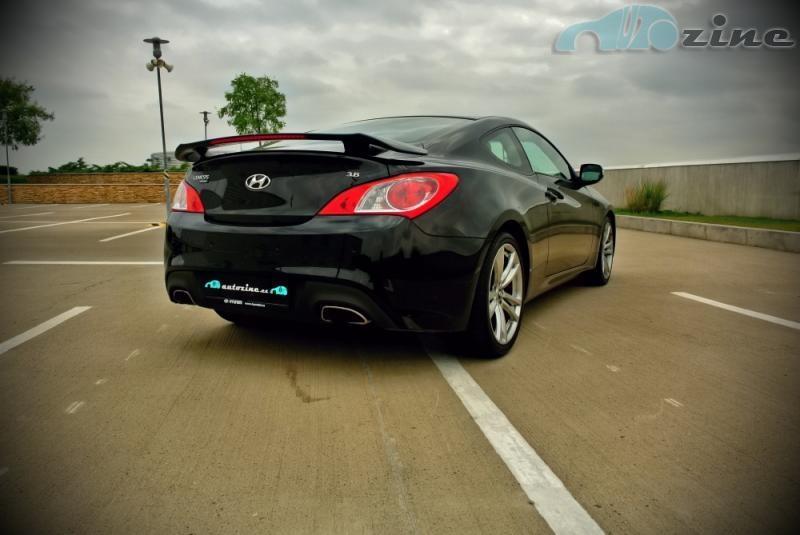
Due to its design, the Genesis Coupé can of course be driven drifting, sideways or, if you prefer, with the doors forward. And even very easily thanks to the Torsen self-locking and the six-cylinder engine under the hood. The car almost knows no understeer, it is quite easy to correct and has a minimal pendulum effect. The bonus is that it is not insidious, because in the final phase of the drift, it does not have to quickly retreat in a straight direction, partly thanks to the power reserve. However, when taking a sudden turn, the rear will of course quickly overtake you, so you need to have some experience. The car has enough power even for a smooth drift on the triple and you can still play beautifully with the slide. When I take into account the fact that the Genesis is not an asshole, weighs something and has Bridgestone Potenza shoes in size 245/40, or 225/40 R19 (of course the wheels also weigh something), so I stare at decent agility and handling. The Nissan will probably be faster in sideways, but it's more fun in the Genesis. I attribute all the pluses to the larger structure, well-tuned chassis and stiff body (24% more torsional stiffness than the BMW E46 M3 ). In my eyes, the chassis works excellently, only really high speeds and larger bumps throw it off, here you need to be careful with the gas. The suspension is exemplary stiff with little tilt, it is quite confident on a good road. The paradox is that it is surprisingly comfortable even when driving briskly over bumps. I wouldn't expect decent pothole filtering and solid noise reduction from a sports coupe. Finally, there is the steering. Accurate, with a pleasantly sharp transmission and good transmission of information from the wheels. However, in a straight line at speeds above 110-120 km/h, it seems a little nervous in the central position. As if it had a slight will, because it needs to be slightly but constantly corrected. Again, it is possible that the geometry was not right, it can sometimes create a decent clearing. It is also possible to place the front arms more flexibly, when in the corners due to the forces of the will they limit themselves and then everything is fine and the "problem" is only in a straight line. Overall, the Genesis without the stabilization system on is a nice "old school" throwback to the days when you had to be able to tame 300 horsepower on the rear axle, not the electronics, and that's something I appreciate a lot about Hyundai .
Resume
It's incredibly easy to fall in love with a car after a while. In the end, there's not much reason why you shouldn't. It looks divine, even if it's a Hyundai . It has a charismatic V6 engine with a wonderful linear pull, a nice tip and a great sound. It has a manual six-speed gearbox, which gives you maximum control over power transmission. It has a self-locking differential and drifts easily, which will force you to buy tissues to wipe the drool and adrenaline flowing from your ears. Another argument is the price, which is really favorable, because you get a significant amount of quality entertainment for it. Plus, it's once again a car you really have to drive. I mean not just gas, brake, turn the steering wheel and gas again. You have to feel the Genesis , as they say, in the "butt", only then it is possible to drive it fast.

Of course, Genesis also has some flies, but they are practically harmless. Here and there some noise, unfinished details in the interior, radio without RDS or seats without memory effect. If you value these things, buy a Passat for the same (!) money, but that's a different priority… On the other hand, it has air conditioning, a decent Infinity stereo (which I only listened to on the spot with the engine off) and the necessary power windows and mirror. The competition must have a legitimate respect for the Genesis Coupé , and I praise the Hyundai car company for this feat, because it proved that it can produce not only family compacts, but also a very decent sports car.
Pros:
– Excellent V6 engine
– Self-locking differential
– Brakes
– Fuel consumption
– Base price
– Design
Cons:
– Slow RPM drop
– Occasional rattling in the interior
– Radio without RDS



